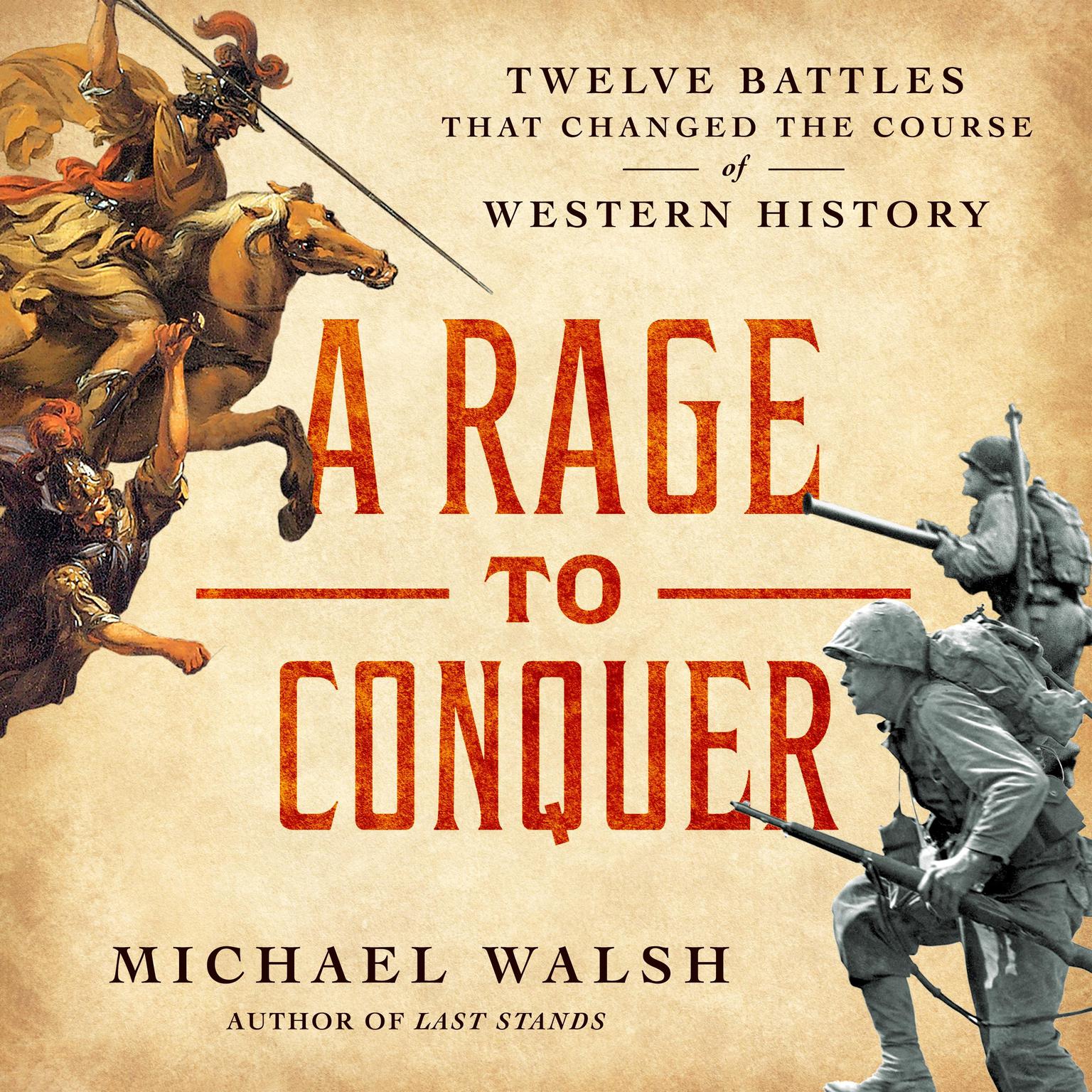 Play Audiobook Sample
Play Audiobook Sample
A Rage to Conquer: Twelve Battles That Changed the Course of Western History Audiobook
 Play Audiobook Sample
Play Audiobook Sample
Quick Stats About this Audiobook
Total Audiobook Chapters:
Longest Chapter Length:
Shortest Chapter Length:
Average Chapter Length:
Audiobooks by this Author:
Publisher Description
This program is read by the author.
"[A] very listenable history..." —AudioFile on The King's Bed (an Earphones Award winner)
Award-winning author Michael Walsh looks at twelve momentous battles that changed the course of Western history.
A sequel to Michael Walsh’s Last Stands, his new book A Rage to Conquer is a journey through the twelve of the most important battles in Western history. As Walsh sees it, war is an important facet of every culture – and, for better or worse, our world is unthinkable without it. War has been an essential part of the human condition throughout history, the principal agent of societal change, waged by men on behalf of, and in pursuit of, their gods, women, riches, power, and the sheer joy of combat.
In A Rage to Conquer, Walsh brings history to life as he considers a group of courageous commanders and the battles they waged that became crucial to the course of Western history. He looks first at Carl Von Clausewitz, the seminal thinker in the Western canon dealing with war. He then moves on to Achilles at Ilium, Alexander at Gaugamela, Caesar at Alesia, Constantine at the Milvian Bridge, Aetius at the Catalaunian Plains, Bohemond at Dorylaeum and Antioch, Napoleon at Austerlitz, Pershing at St.-Mihiel, Nimitz at Midway and Patton at the Bulge with a final consideration of how the Battle of 9/11 was ultimately lost by the U.S. and what that portends for the future.
A Macmillan Audio production from St. Martin’s Press.
Download and start listening now!
A Rage to Conquer Listener Reviews
Be the first to write a review about this audiobook!
About Michael Walsh
Michael Walsh is a journalist, author, and screenwriter. The former classical music critic and foreign correspondent for Time magazine, he is now a regular contributor of political and cultural commentary to PJ Media and American Greatness, as well as a Sunday op-ed columnist for the New York Post. His awards include the ASCAP-Deems Taylor Award for distinguished music criticism in 1979, and the American Book Awards prize for fiction for his gangster novel, And All the Saints, in 2004.






























